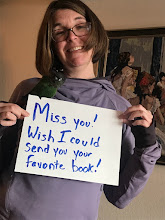
The last weeks of summer, school doesn't start until after Labor Day in Michigan, have eclipsed blogging. I've been working in rare spare moments on a post about agave nectar, never getting enough time to finish, but I am close. Calls from friends to swim or visit old fashioned villages or work on endless craft projects thought up by my seven-year-old, along with a frustrating termite infestation, have taken priority over posting here.
While I finish editing the agave nectar post, here's an article for you to read. It's biased of course. But it perfectly sums up an inner struggle of mine. I know there is minimal, reliable research to support the idea that organic foods are healthier for us. And I know that even organic food varies in standard practices. Still, I struggle because I want to buy organic food. I like to know that the farmers and manufacturers who produce my food have the earth, its resources, and my health in mind when making a product. Greed can still exist in the organic market, but the methods involved seem more thoughtful, lasting.
The ugly reality for our limited income though is that to buy organic would strain the budget. We'd have to give up something--organic milk was $5.69 a gallon the other day. Soccer for the girls? Cable TV (bye bye PBS since you won't come in around here without cable)? Internet access? Go vegetarian and just eat beans and eggs? Never ever go to the cheap movies or to a a quick treat at DQ? Really our budget is already so bare bones that those are the only sacrifices left.
So, where do you fall? On the spectrum, do you ignore organic food because of its cost or because it isn't necessarily healthier? Do you buy a mix or organic and non-organic? And do you think we should we give up more for a more sustainable system of agriculture? Do you know of an article representing the other side of the issue? (I had a friend in Montana whose dad was a rancher. Eating organic was tantamount to sin in her family but her only explanation was that the organic people spread lies.)





I don't buy organic because of the price. It also seems to be the "in" thing right now and I don't like that some comapnies are taking advantage of that and putting an "organic" lablel on everything.
ReplyDeleteI found you from another blog...and I struggle too. I really REALLY don't like high fructose corn syrup in my kids' diets, so getting organic snacks (which at our house are NOT treats, but actual GOOD for you things) for on the go and knowing there isn't anything objectionable in them, is great. At home snacks are cut up fruit or the like, but on the go, some kind of wrapped snacks are easier. B I do struggle with things like fruits and veggies being organic, wbecause they are always more money, but I don't wany chemicals in our food. I make my own baby food, and that is almost always out of organic fruits/veggies/rice/etc. But for the rest of us...man, the cost is so high. I feed my family of 4 (in a few months to be 5) on a budget of $70/week...getting lots of organic in there is HARD.
ReplyDeleteLaura - I've been having this same struggle. I'm in the middle of reading Food, Inc. (the companion book to the documentary) and just talked to Rob about making the switch for at least our dairy products. But the cost for most things is so prohibative at this stage in our financial lives. We just bought half a grass-fed, hormone free cow direct from a farmer for less money than beef is in the store but that is the only thing I have been able to find for the same price or for less money than, say, Aldi where we do most of our shopping. I do go to the farmer's market and let myself spend about $20 a week (which out of our food budget is a ton) but I wish I could get everything there.
ReplyDeleteI definitely think we should all consider the impact our food choices have on the planet. It's funny how people will spend extra money to buy a fuel-efficient vehicle or make other more "planet friendly" choices but rarely consider the impact of farming practices and our food choices. It is a bit of an "in" thing at the moment, but I think part of that is because we just haven't much of a reason to become aware of the issues connected to the food supply. I don't think it's going away any time soon and I hope to learn more and figure out ways that I can be as much a part of the solution as possible.